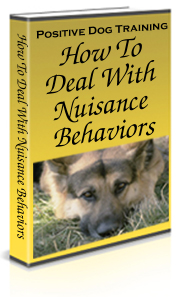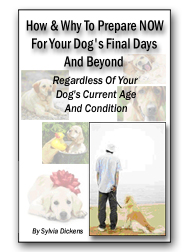Whether you have a puppy or an adult dog, the process is the same.
Rule #1: Start where you want to end up. In the garden or somewhere else outside. Don’t bother training your dog to go on newspaper or a puppy training pad when what you really want is for him or her to go outside. Otherwise, it means double the training.
There are certain things you must do to get off on the right foot.
- Keep your eye on your dog. Watch for signs she is getting ready to relieve herself. Some signs include sniffing the floor, walking around in circles, and suddenly stopping play and wandering off.
- Be aware of the times when dogs and puppies normally need go to: when first getting up in the morning or after a nap; after meals; after drinking; during and after play; when you leave and return home; during the night.
- Let your puppy out at those times. You won’t likely appreciate being woken in the night, so let her out before going to bed. Be sure to give her sufficient time to get it all out. When she first goes, don’t assume she’s done. She’ll likely go several more times before she’s ready to come back in.
What not to do when housebreaking your puppy
- Don’t scold her when she has an accident. Instead, take her right outside and let her roam around a bit. Chances are, she’ll go again. That’s when you praise her before bringing her back inside.
- Do not deprive her of water in an attempt to lessen her need to go when you aren’t there to take her out – or for any other reason. Withholding water can lead to serious illness such as kidney disease and urinary tract infections.
- Don’t badger her to go. She’ll go when she’s ready. Badgering her won’t help. Rather, it will make her apprehensive and reluctant to go… basically, you’d be scaring her into not going. It will bring the opposite result than what you desire.
Keep this in mind when housetraining your dog
Puppies are still learning about their environment, now that they don’t have their mother or litter mates to share the experience. Some of it will be a bit nerve wracking. If the puppy spends most of its time inside, the outside can be quite intimidating for them. This is also true of adult dogs or adopted dogs that have never been housetrained.
Dogs, puppies and even people can feel a bit vulnerable when they are taking care of their toilet needs. You can imagine how vulnerable a puppy feels. He’s in the big, wide open spaces. He’s virtually alone (no dog relatives around). He’s with a new family. Most likely, he’s going through the stress of separation and a new home.
He’s having to become familiar with his new surroundings. He’s learning new rules. It’s a lot for a puppy to take in, so it’s best to make his potty training as easy for him as possible. Don’t add more stress. Make him feel good with praise, rather than scolding for something he doesn’t understand is wrong. It’s your job to teach him.
Do you want to learn more tips and tricks to training and living with your dog, young and old? Sign up for my Dog Talk Weekly newsletter. It’s free!



